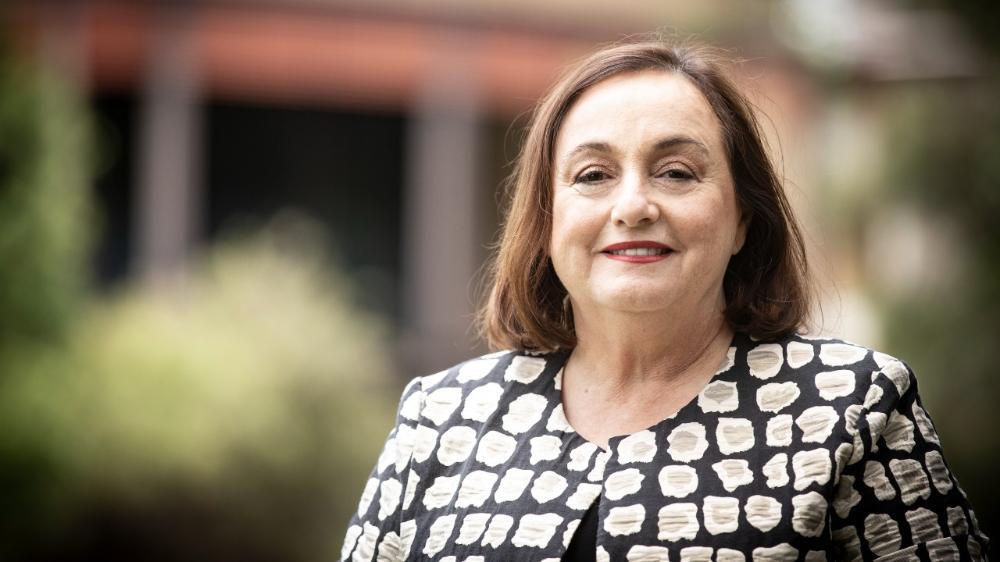People with disabilities have a lot to offer the SMAH community as students and leaders, mentees and mentors, colleagues and friends. People with disabilities may bring new perspectives which benefit our research, teaching, and governance.

Disability Resources
Approximately 18% of Australians aged between 15-64 have some form of disability, and people with disabilities are less likely to be employed than people without disabilities.
UOW is working to supporting people with a disability through the Accessibility Action Plan 2019 – 2021 (AAP), and has target of 1.5% of staff with a disability requiring a work-related adjustment.
SMAH has an Equity, Diversity and Inclusion committee dedicated to supporting staff with a disability, their supervisors, and their colleagues. The committee includes academic and professional staff and students from across the schools and seniority levels and is led by the Associate Dean for Equity, Diversity, and Inclusion (AD-EDI).
Equity, diversity, and inclusion at UOW
A message from Vice-Chancellor, Professor Patricia Davidson
Resources
Equity, Diversity and Inclusion Policy
This policy relates to all aspects of employment, including sourcing, attraction and selection, progress, retention, talent identification, staff training and development succession planning, performance management, resignations, job classification, reward, resolution of conflict and interpersonal relationships.
UOW Equity, Diversity and Inclusion Strategy
This Strategy outlines what is expected of managers and will assist in meeting those expectations by providing standards for proactively managing workforce diversity and ensuring equity for staff.
SMAH Equity, Diversity and Inclusion Strategy
This Strategy outlines goals for improving EDI for all staff, students, and visitors in the Faculty.
This policy outlines the rights and responsibilities of UOW students and staff in relation to a) students with disabilities and b) students who have an associate with a disability.
This policy demonstrates the University's commitment to fostering and supporting a diverse workforce and integrating equal opportunity for people with disabilities into University policies, procedures, decisions, and operations.
Accessibility Action Plan 2019 – 2021 (AAP)
Sets out key priorities to create an inclusive learning and working community for students, staff and community stakeholders living with a disability. The AAP is guided by the principles of Universal Design and embeds this thinking and practice into related goals and objectives
Timetabling for Academic Teaching Staff – Staff Special Consideration/Reasonable Accommodation
Provides information about and access to the Staff Special Consideration/Reasonable Accommodation Form. In accordance with the Fair Work Act 2009 Clause 65, Academic Staff may request a change to their teaching availability. Examples of changes in working arrangements include changes in hours of work, changes in patterns of work and changes in location of work. Consistent with Universities Equity, Diversity and Inclusion Policy reasonable timetabling accommodations will be made for staff with regard to disabilities.
Operation of Flexible Hours of Work Procedures
General Staff Time and Attendance Policy
This Guideline outlines the flexible work options available to employees/staff within the
University and provides guidance on the design, initiation and monitoring of flexible work
arrangements.
- The SMAH HR Business Partner
- The Faculty Work Health Safety (WHS) contact on 4221 3931 or smah-whs@uow.edu.au
- The Faculty Associate Dean (EDI) and EDI Committee Chair: smah-edi@uow.edu.au
- Associate Head of School (EDI)
- Disability Inclusion Network
Which Pathway do I use if I am a UOW student who also does paid work for UOW?
You use both
- You follow the student pathway(s) for gaining assistance with your student work (research or coursework).
- You follow the staff pathway(s) for the work you do under your employment contract.
Who do I speak to if I do not feel comfortable talking to my supervisor/manager?
Be clear about why you want/need to have the conversation that makes you feel uncomfortable — understanding what you hope to achieve through having it can help you to work out:
- who else you may be to approach to assist you in making your way through the appropriate pathway for getting support
- your specific concerns and how you can manage them if you choose to proceed with the disclosure necessary to make your request
Is there any training available on supporting workers with a disability?
- All UOW staff should complete the Equal Opportunity modules online when they start and again every two years after that to ensure they are up-to-date.
- The UOW Disability Inclusion Network (UOWDIN) recommends the free online Disability Awareness Training by the Public Service Commission. The modules take 20 minutes to complete. Further resources are also provided on the UOWDIN website.
- There is a course called Supporting Workers with Disabilities available on LinkedIn Learning. Staff have access to LinkedIn Learning through the University, there are instructions on how to use LinkedIn Learning (formerly Lynda) using your UOW staff credentials in the IMTS Knowledgebase.
“I have a Disability yes that’s true, but all that really means is I may have to take a slightly different path than you.” - Robert M. Hensel
“Disability is natural. We must stop believing that disabilities keep a person from doing something. Because that’s not true . . . Having a disability doesn’t stop me from doing anything.” - Benjamin Snow, Grade 8, Woodland Park, Colorado, in his essay “Attitudes About People with Disabilities”
“The severity of one’s disability does not determine their level of potential. the greatest barriers that persons with disabilities have to over come are not steps or curbs, it’s expectations.” - Karen Clay
“Disability is a matter of perception. If you can do just one thing well, you’re needed by someone.” - Martina Navratilova
“The world has a fast-growing problematic disability, which forges bonds in families, causes people to communicate in direct and clear ways, cuts down meaningless social interaction, pushes people to the limit with learning about themselves, whilst making them work together to make a better world. It’s called Autism – and I can’t see anything wrong with it, can you? Boy I’m glad I also have this disability!” - Patrick Jasper Lee
“We think we know what it’s all about; we think that disability is a really simple thing, and we don’t expect to see disabled people in our daily lives.” - Stella Young
“Chances are, disabled or not, you don’t grow all of your food. Chances are, you didn’t build the car, bike, wheelchair, subway, shoes, or bus that transports you. Chances are you didn’t construct your home. Chances are you didn’t sew your clothing (or make the fabric and thread used to sew it). The difference between the needs that many disabled people have and the needs of people who are not labelled as disabled is that non-disabled people have had their dependencies normalized.” - AJ Withers
“The world needs different kinds of minds to work together.” - Dr Temple Grandin
“It is our culture that disables. When one is disabled, the problem is not really that they have impairments and social skill deficits. The issue at stake is that they live in an ‘ableist’ culture that rarely affords them the space or opportunity to make their unique contribution to society and does not lift up the value of choosing them as friends.” [or employees] - Ben Conner…Amplifying Our Witness (2012)
Definitions
The University of Wollongong recognises the legal definition of disability, as defined in the Commonwealth Disability Discrimination Act 1992 (DDA). The DDA encompasses temporary or permanent physical, intellectual, psychiatric, sensory, and neurological and learning disabilities and the presence in the body of organisms causing, or capable of causing, disease. The definition of 'disability' according to the DDA stipulates that a person with a disability has:
- Total or partial loss of a person's bodily or mental functions; or
- Total or partial loss of a part of the body; or
- The presence of a body of organisms causing disease or illness; or
- The presence of a body of organisms capable of causing disease or illness; or
- The malfunction, malformation, or disfigurement of a part of a person's body; or
- A disorder of malfunction that results in the person learning differently from a person without the disorder or malfunction; or
- A disorder or illness that affects a person's thought processes, perception of reality, emotions, or judgement or that results in disturbed behaviour;
And one which:
- Presently exists; or
- Previously existed but no longer exists; or
- May exist in the future; or
- Is imputed to a person.
Under the DDA (see immediately above), "illness" is cited as a potential cause of disability. Three forms of illness are cited:
- Illness caused by the presence of a body of organisms
- Illness caused by the presence of a body of organisms capable of causing illness
- illness that affects a person's thought processes, perception of reality, emotions, or judgement or that results in disturbed behaviour
Not all conditions are apparent by observing a person. These conditions have become known as "invisible" or "hidden" conditions as a result. Your condition does not have to be "visible" to others to be valid, nor do you have to justify any reasonable accommodation you may have been given to peers or other members of the University. Each person's situation and needs are unique, and there are pathways for getting support outlined below. Regardless of whether your condition is visible or not, you are likely to be asked to provide supporting evidence – working with your primary healthcare provider is the best way to ensure that any reasonable accommodation implemented is going to be something that supports you in your work.
Neurodiversity encompasses any variation in the human brain regarding sociability, learning, attention, mood and other mental functions. In the way that a healthy natural environment requires rich biodiversity of species, workplaces and communities are enriched by embracing neurodiversity.
The world does not automatically include or adapt for neurodivergent people, creating circumstances in which their environments dis-able them in ways that do not affect neurotypical people.
The complex interactions between a person's brain and the environment they are trying to work in can mean that being neurodiverse can sometimes be a disability. At other times, it is not. You cannot tell by looking at someone whether they are neurodivergent, and they are under no obligation to either notify you that they are or explain what that is or is like if you are curious. Some people are happy to talk about their experiences, and others are not.
It is always a good idea to use as little jargon as possible when communicating with people in the workplace. Clear communication not only supports EDI diversity but multi-disciplinary work – and creates a more robust research and learning environment.
Disclosure is the act or process of sharing information that was not previously known. For a marginalised group member, this is usually information that they feel may expose them to the risk of or an increased risk of discrimination or harassment if it were to become "public knowledge". In this context, such information is usually personal and relates to a health or medical status and/or how others may perceive them. It can include information you may share with a close and trusted friend about a health or medical condition but that you would not be comfortable discussing with an acquaintance, for example.
For more information on disclosure and choosing the right path for you, refer to information developed by the National Disability Coordination Officer.
Ask a question
The SMAH EDI committee believes that honest feedback leads to improvement. You can use this form to leave an anonymous comment or ask an anonymous question. Where appropriate, responses to submitted comments and questions will be added to the FAQ section of this page.
Submit question Help us improve this page


